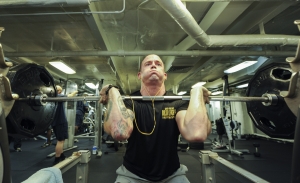So you have poured months into a project, maybe it's a painting, a novel, a killer piece of software, and out of the blue, someone else is trying to pass it off as their own. Your first instinct? Protect what is yours. The next thought? Do you really need to hire a copyright lawyer, or can you handle things on your own?
Filing a copyright claim without legal help is not just possible but makes perfect sense in some cases. However, there is a fair bit to weigh up before deciding to go solo. Let's break down where the DIY approach shines and where it can backfire.
What Is Involved If You Handle a Copyright Claim Without Legal Help?
First things first, yes, you absolutely can file a copyright claim without legal backup. In fact, copyright protection springs into action the moment your work is created and saved in a tangible form. Registration, however, is a different ballgame.
It usually means filling out some forms, paying a fee, and sending in a copy of the work to the relevant authority, depending on the type of business you are running or what you intend to protect. Sounds straightforward, right? Well, it often is, but only if you know what you are doing. Without a legal expert guiding you, the burden falls squarely on your shoulders to get every detail right.
Are There Any Benefits of Doing It Alone?
One of the biggest draws of DIY copyright filing is obvious, and that is saving money. Lawyers don't come cheap, and for creators working with tight budgets, cutting out professional fees can feel like a win straight out of the gate.
There is also something empowering about handling it yourself. Getting to grips with copyright processes gives you a deeper understanding of your rights. Plus, it is not just paperwork, but a way of staking your claim in the creative economy. For simple cases, say, registering a painting you have already showcased or a short story posted online, managing the process solo can work out just fine.
Potential Risks of Filing Without a Copyright Lawyer
What looks like an easy task can quickly turn complicated once you scratch beneath the surface. Misclassifying your work, leaving out crucial information, or even misunderstanding submission rules could seriously weaken your claim.
And what happens when someone actually infringes on your work? That is where the waters get murkier. Copyright law is not just a set of straightforward rules, it is a system with so many grey areas, loopholes, and technicalities. Miss one and you might find yourself boxed into a weaker legal position before you even know what's hit you.
It gets even more tangled when joint ownership, licensing, or international protection comes into play. One wrong move here, and you could spend far more trying to fix the damage than you ever saved by skipping legal advice in the first place.
When You Really Shouldn't Go In Alone
There is a point where calling in the professionals stops being a luxury and starts being common sense. If your work has already been copied or misused and you need to enforce your rights, having an experienced copyright lawyer on your side can help.
Likewise, if your creative project has serious commercial potential, think brand deals, licensing agreements, or major publishing contracts, legal guidance is a must. Trained eyes spot risks that amateurs miss, and a good lawyer can set up agreements that protect your work far beyond a simple copyright certificate.
Not to mention, when it comes to tricky issues like fair use, derivative works, or international copyright rules, guessing your way through could land you in hot water. An experienced lawyer helps you play offence, not just defence.
Wrapping It Up
Taking the reins and filing your own copyright claim can be a smart, cost-effective move but only if the situation is simple and you are confident in the process. For many creators, it is a perfectly manageable first step. But when the stakes climb, the rules get messy, or disputes start brewing, professional help is essential.






